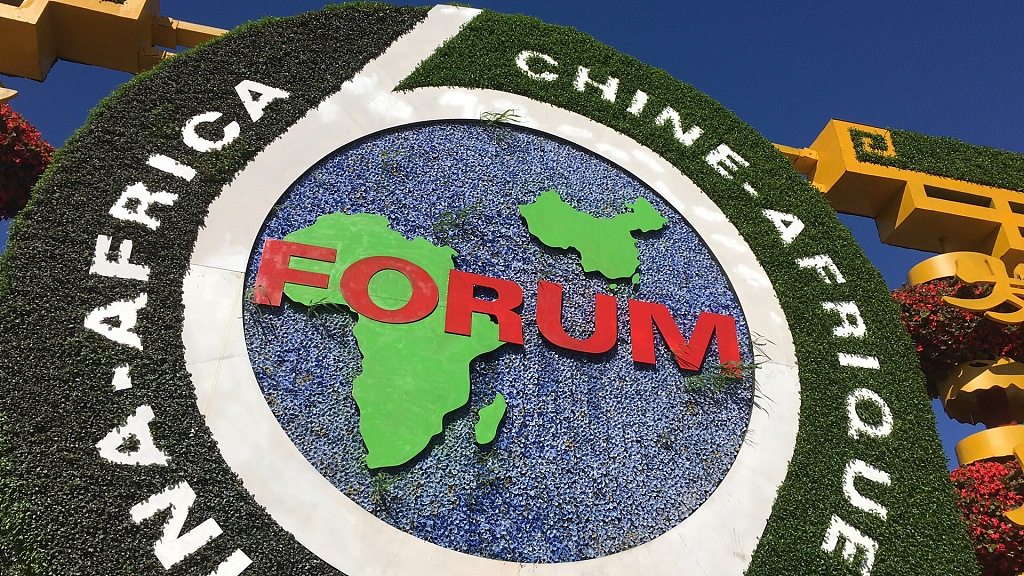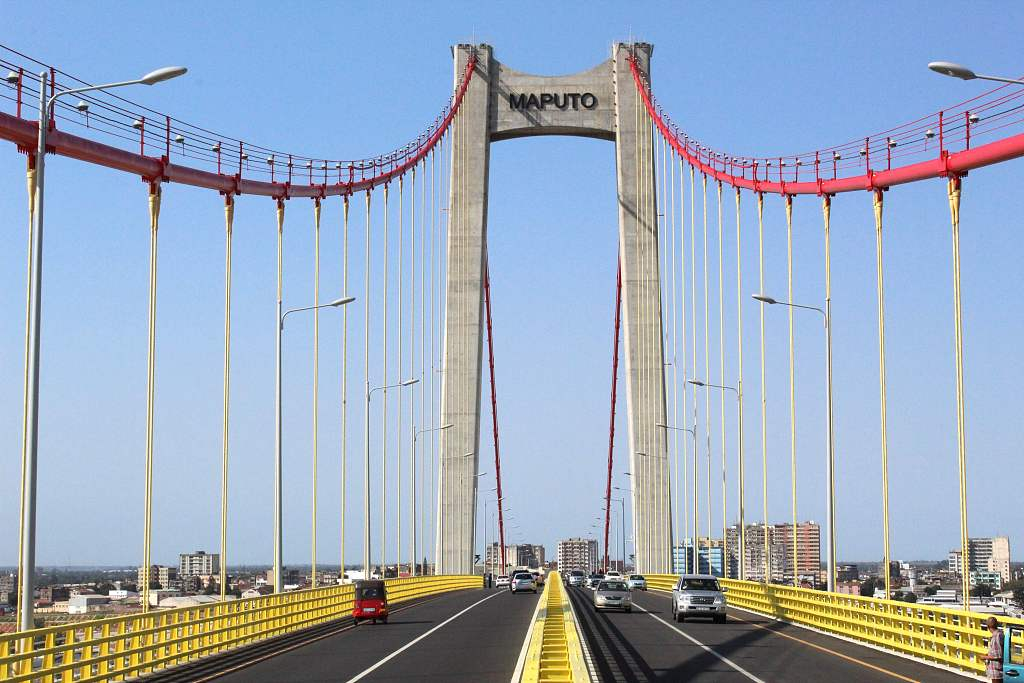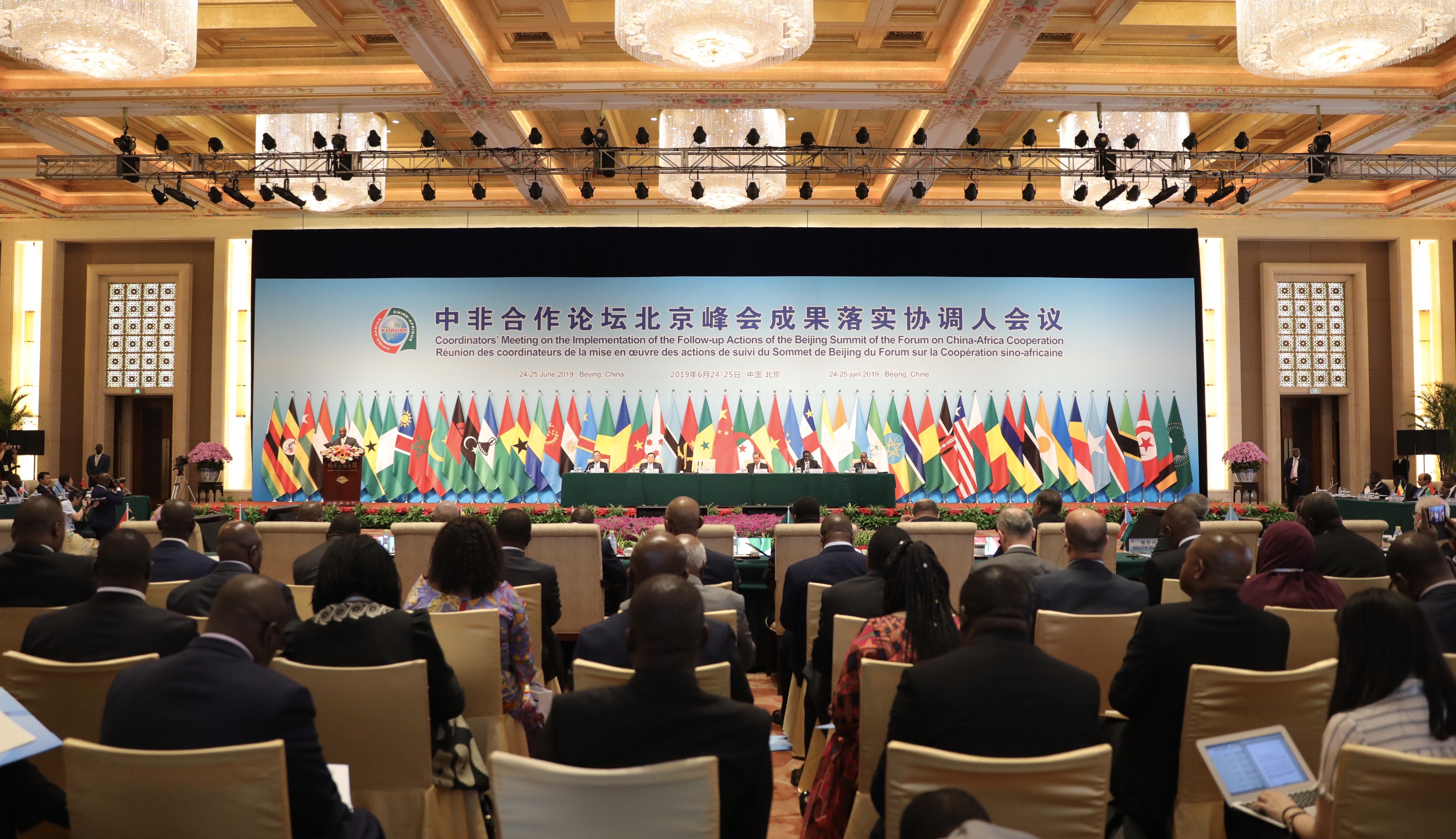
The Beijing Summit of the Forum on China-Africa Cooperation (FOCAC) last September marked a new height in blossoming China-Africa relations. The high-profile summit launched eight initiatives, proposed by President Xi Jinping in his keynote speech, laying out an action plan for pragmatic cooperation with African countries in the next three years.
Through the implementation of the eight initiatives – industrial promotion, infrastructure connectivity, trade facilitation, green development, capacity building, healthcare, people-to-people exchange, and peace and security – China has demonstrated its commitment to bringing the outcomes of the Beijing Summit to fruition.

The Logo of the Beijing Summit of the Forum on China-Africa Cooperation (FOCAC) is seen in the street of Beijing ahead of the FOCAC Beijing Summit, September 3, 2018. /VCG Photo
Building on the momentum of last year's summit, Beijing hosted African foreign ministers this week for a coordinators' meeting on the implementation of follow-up actions of the Beijing Summit of the FOCAC. The first China-Africa Economic and Trade Expo, also conceived at the Beijing summit, is scheduled for June 27-29 in Changsha, central China's Hunan Province. An online fair will also be held and a permanent exhibition hall in the city established specially for the sale of African products.
With 53 African countries confirmed to attend, along with representatives from a handful of international organizations, the expo will establish a new mechanism for economic and trade cooperation between China and African countries. As China promised to launch a trade facilitation initiative and increase imports, particularly non-resource products, from Africa, this week's event is an example of concrete actions by the two sides and tangible results of cooperation under the FOCAC framework.
What else has materialized?
China has been Africa's largest trading partner for 10 consecutive years. According to the Ministry of Commerce, the trade volume between China and Africa amounted to 204.2 billion U.S. dollars in 2018, up 20 percent year-on-year. China's imports of non-resource products from Africa increased significantly last year as the trade structure has continued to optimize. More than 350 types of agriculture and food products from Africa have been allowed to enter the Chinese market.
Following the Beijing Summit, steps were taken immediately to support African countries in selling their products to China and to address trade imbalance. Last year, eight African countries were invited to the China International Import Expo, with poorer countries exempted from paying fees. More than 160 companies from 42 African countries participated the November event.
It doesn't get more concrete than the various large-scale infrastructure projects financed and built by China. The Maputo–Katembe Bridge, Africa's longest suspension bridge connecting South Africa to Mozambique, opened in November 2018, and the Souapiti hydropower plant in Guinea is near completion.

A general view of the newly inaugurated Maputo-Katembe bridge in Maputo, Mozambique, November 11, 2018. /VCG Photo
By the end of 2018, more than 3,700 Chinese enterprises across a wide range of industries had been set up in Africa with a combined direct investment over 46 billion dollars. Besides state-led projects, small and medium-sized enterprises such as e-commerce platforms and start-ups have experienced explosive growth in recent years, tapping into the boundless potential of Chinese and African entrepreneurship.
China and African countries are coming closer despite some setbacks from rising protectionism and trade frictions between major economies. The active participation of African countries in China's Belt and Road Initiative is proof that African countries see real benefits in cooperation with China, which is mutually beneficial and provides a model for cooperation with other countries, said Professor He Wenping, Director of African Studies at the Institute of West-Asian and African Studies of the Chinese Academy of Social Sciences (CASS).
As part of the efforts to enhance people-to-people exchanges, the China-Africa Institute was established last year under the auspices of the CASS to promote academic exchanges between China and Africa and enhance mutual learning between Chinese and African civilizations.
As President Xi once put it, China will "teach Africa to fish" rather than give it fish (aid) in order to help African countries realize independent and sustainable development. The Beijing Summit promised to set up 10 "Luban Workshops," named after a legendary ancient Chinese craftsman, in Africa to provide vocational training for young Africans. In March, the first Luban Workshop, created by the China Civil Engineering Construction Group, opened its doors in Djibouti.

Young Kenyan entrepreneur Kalio runs a successful online clothing business in Hangzhou, Zhejiang Province, May 24, 2019. /VCG Photo
Equal partnerships
In an article in April titled "Walking together to go far", Cai Fang, Director of the China-Africa Institute, noted that the Chinese economy and African economies are mutually complimentary, and that China's experience as the largest developing country could help African countries overcome their bottlenecks in development, namely backward infrastructure, insufficiency of skills and weak governance. Their common experience of poverty and historical oppression could also foster a deep understanding of each other's need for national rejuvenation.
At the opening of the coordinators' meeting on Tuesday, Chinese State Councilor and Foreign Minister Wang Yi told his African counterparts that China never pursues selfish geopolitical gains in Africa and would never impose its will on others. Wang also reiterated that China's financial support to African countries did not come with any political strings.

The Coordinators' Meeting on the Implementation of the Follow-up Actions of the Beijing Summit of the Forum on the China-Africa Cooperation (FOCAC) kicks off in Beijing, China, June 25, 2019. /CGTN Photo
However, some in the West have compared China's investments in Africa to "colonialism," accusing China of having ulterior motives and hyping up fears of so-called "debt traps." This myth is easily debunked by the five "hands-off" principles summed up by Xi regarding China's long-standing position toward Africa.
According to Xi, these principles entail that China does not interfere in African countries' search for development paths suited to their national realities; does not interfere with Africa's internal affairs; does not impose its will on others; does not attach any political conditions to its aid to Africa; and does not seek political self-interest in its investment in Africa.
The five "hands-off" principles are the big difference between China-Africa relations and those between Africa and some Western countries, Professor He said.
"Equality is what makes China-Africa relations different from those Western countries had with Africa," He said. "China doesn't act like it's above others."
He also noted that the 60 billion U.S. dollars of financial support China has promised is different in composition from the same amount which China pledged at the 2015 summit in Johannesburg. The package unveiled in 2018, with a notably increased proportion of interest-free loans and preferential loans, and additional special funds for African exports, shows China's aim to encourage African exports to China and reduce debt risks.

Copyright © 2018 CGTN. Beijing ICP prepared NO.16065310-3
Copyright © 2018 CGTN. Beijing ICP prepared NO.16065310-3